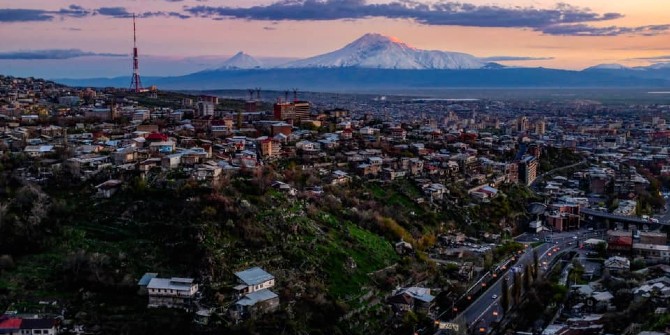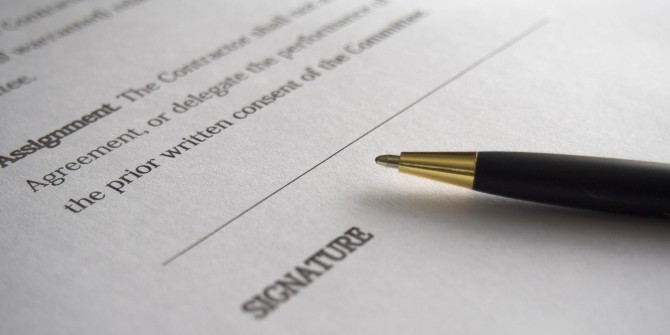How can Australia re-engage with the world in the era of COVID-19? And how can it strengthen its social foundations as it does so? The Sydney Policy Lab and the Open Society Common Purpose Task Force propose a roadmap for reopening.
To be prosperous, fair, and strong, Australia must be open to the world and close-knit at home. Never have both been so important, but so difficult to achieve simultaneously. One of the by-products of the pandemic has been Australia’s decision to close its borders and separate itself from the rest of the globe. We have also seen the unprecedented use of internal state border closures and the emergence of tensions within and between communities, often encouraged by pedlars of intolerance and racism. It is in no one’s interests that this situation continues longer than necessary.
The majority of Australians have to date favoured an approach that emphasises the aggressive suppression of COVID-19, including continuing restrictions on entry into the country, potential closure of state and territory borders, and graded lockdowns when necessary. Nonetheless, Australia cannot continue to lock itself off from the world as a hermit nation indefinitely. The social and economic costs of doing so are simply too great and Australia risks being left behind as the powerful nations around the world emerge from the pandemic and start to re-engage. The question therefore is not when but how Australia should reopen.
While some argue that Australia should only open up to the world when zero COVID transmission can be guaranteed, the taskforce believes this to be unrealistic. The virus causing COVID-19 (SARS CoV-2) will not disappear from the world. We need to acknowledge and respond to this reality. As such, a ‘zero COVID’ strategy is incompatible with global reintegration, while continued isolation would damage Australia’s reputation as an open and tolerant society.

A more sensible and realistic option is to reopen to the world in a controlled and staged way, supported by the delivery of an effective vaccine program and a sensible regime of monitoring and isolating those with infection. In such a situation, large outbreaks associated with an excessive burden on the health care system or loss of life can be prevented and the safety of the nation assured. In short, our recommended strategy is for Australia to move from zero COVID, which traps us in suspended animation, to ‘securely reopened and effectively vaccinated’ which would allow us to ‘live with COVID’ in a way that minimises both direct and indirect harm.
To emerge from the pandemic and re-engage with the world, Australia needs to move from fear to hope, from negativity to an optimistic belief that ‘we can do this.’ This will only be possible if Australia reopens to the world in a controlled, risk-weighted and staged manner. In some respects, Australia has already proven it can do this: since the emergence of COVID-19, some 250,000 people (citizens, permanent residents and short-term visitors) have arrived on our shores, with COVID-19 cases kept to a minimum. The taskforce offers the following roadmap for Australia to reopen to the world. Australia needs to pursue:
- a comprehensive and successful vaccination programme;
- sector and place-specific pilot programs to reopen prior to the conclusion of the vaccination programme, supporting industries critical to Australia’s economy including tourism and creative industries, horticultural farming, and international education;
- a certification scheme across these programmes, which permits only those with documented vaccination and/or SARS CoV-2 immunity to enter Australia or travel overseas;
- improved border protection measures involving rapid testing;
- a range of new risk-weighted quarantine measures complementing the maintenance of hotel quarantine for those who come from high-risk countries, refuse testing, or test positive on arrival.
The pandemic provides several important lessons.
- Australia should return to its pre-COVID embrace of immigration and multiculturalism. This should be supported by a national anti-racism strategy.
- The pandemic, with its obvious implications for people’s mental health, should be a catalyst for the creation of a fully integrated public community-based system of care.
- The economic inequalities exposed by the pandemic need to be addressed through a strategy of inclusive prosperity.
- The success of the National Cabinet in overcoming the pandemic should be regarded as an example of the power of national cooperation to foster success in other areas of our national life.
- Australia must accept its moral duty to assist our Pacific neighbours to protect the health of their citizens and overcome the economic damage caused by the pandemic.
The urgency shown by Australia in initially suppressing and then locally eliminating COVID-19 now needs to be shown towards preparing the country for reopening its international borders. Reopening requires not only building a path towards rapid large-scale vaccination of the Australian population and changes in the way in which quarantine operates, but also creating a ‘psychological runway’ for Australia to reopen. It is a case of moving decisively to ensure that Australia wins not only ‘the war’, but also ‘the peace’.
If Australia is not ready to reopen effectively when the world recovers from the worst of the pandemic, we face enormous dislocation socially and prolonged pain economically. We need to move from the anxiety of the last year to a more confident and outward-looking future. If we do not, it is no exaggeration to say that young people, in particular, face a lost decade.
This post represents the views of the authors and not those of the COVID-19 blog, nor LSE. It is an edited extract from Open Society, Common Purpose task force: “A Roadmap to Reopening: A report of the Open Society Common Purpose taskforce,” Sydney Policy Lab, Culture Strategy, University of Sydney (May 2021).






1 Comments